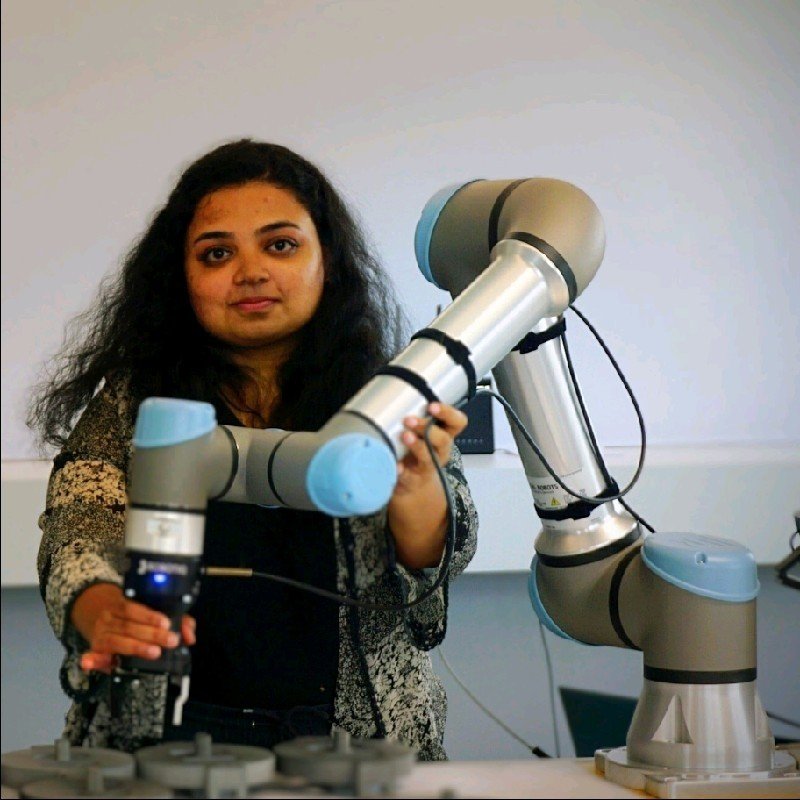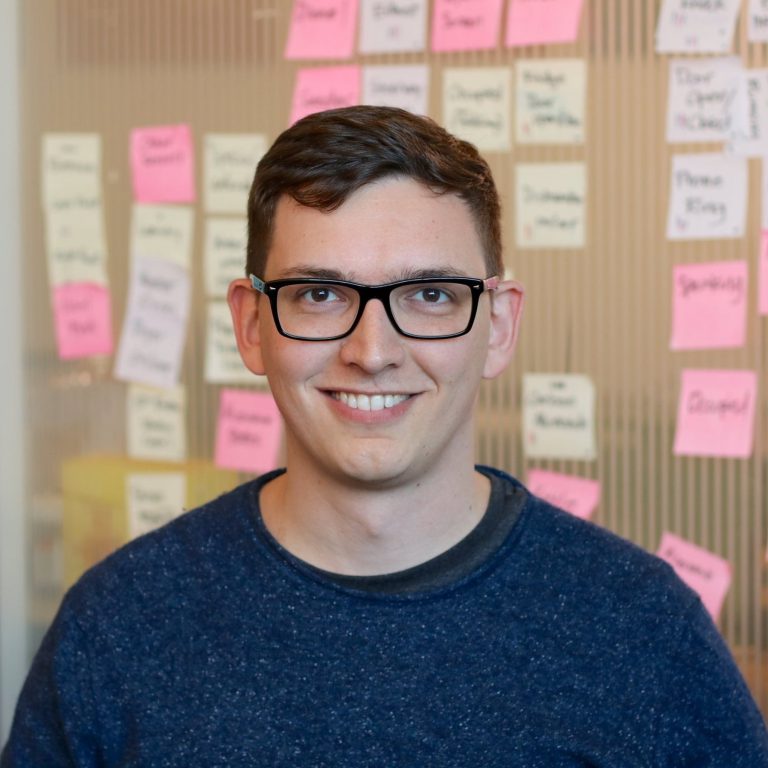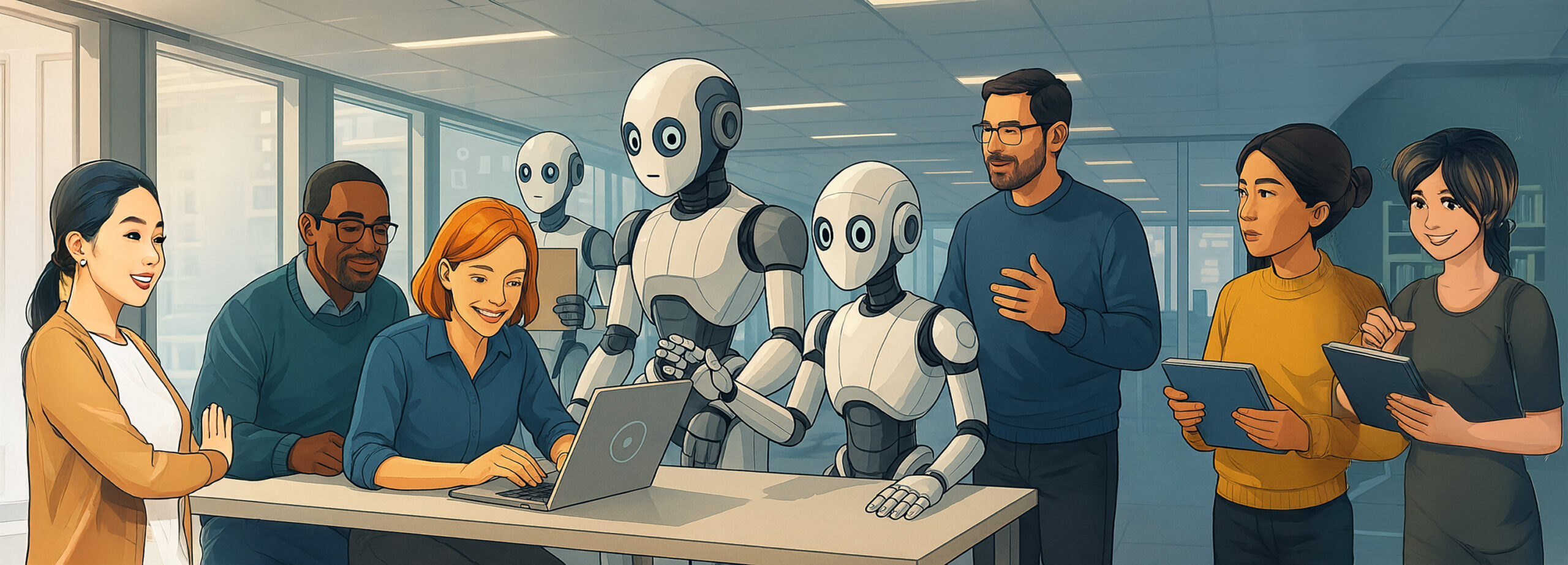Room: L120
The integration of robots into workplaces presents exciting opportunities for enhancing collaboration, trust, and productivity. To explore these possibilities and address key challenges, we invite participants to join our half-day workshop at CHIWORK 2025.
We take a broad perspective on both work—ranging from office settings and factories to home offices—and robots, encompassing everything from humanoid assistants to robotic furniture.
This workshop aims to bring together researchers and practitioners from HRI, HCI, Robotics, Machine Learning, Cognitive Science, and Ethics to discuss the future of human-robot synergy in the workplace. Our goal is to explore how robots can be designed, implemented, and evaluated to foster meaningful and productive workplace interactions.
Call for Participation
Submission deadline: 08.05.2025 23:59 AoE 22.05.2025 23:59 AoE
Notification date: 13.05.2025 AoE if you submit before the Early Bird Conference Registration Deadline otherwise 29.05.2025
Camera-ready deadline: 05.06.2025 23:59 AoE
We invite submission that cover topics from the central areas of this workshop, including but not limited to:
- Opportunities and challenges of integrating robotic systems into various work environments
- Human factors in human-robot collaboration, including usability, ergonomics, and cognitive load
- Case studies on ongoing projects and real-world applications of workplace robotics
- Human-building interaction and the role of robotics in adaptive workspaces
- Robotic furniture and its potential for dynamic and responsive work environments
- Robots for specific fields of work, from manufacturing to healthcare and beyond
- Telepresence robots to enhance remote collaboration and home-office productivity
- Trust, acceptance, and accountability in human-robot workplace interactions
- Human augmentation through robotic assistance and AI-driven enhancements
- Wearable robots for physical and cognitive support in the workplace
- Assistive robots designed to support employees with diverse needs
- The future of work: Will robots replace human workers, or become collaborative partners?
- Interaction, feedback, and communication modalities for seamless human-robot collaboration
- Collaborative understanding between humans and robots to improve teamwork and efficiency
Submissions should follow the CEUR workshop format (Overleaf template) and must be between 4-8 pages, excluding references.
Authors must provide a declaration on the user of GenAI for their submission in line with the CEUR-WS policy.
Please send your submission to jan.leusmann@ifi.lmu.de.
Registration
At least one author of accepted submissions must register, attend the workshop, and present their work.
The workshop will be a in-person only workshop.
Please refer to the CHIWORKS website for details on the conference registration.
If you are interested in the topics of this workshop but are not co-author of a full workshop submission, you may submit a “statement of interest” (300-500 words) outlining your background and your interest and perspective on the topics of this workshop.
We are looking forward to meeting you!
Schedule (preliminary)
9:00 – 9:15 Welcome and Introduction
9:15 – 9:45 Paper presentations
9:45 – 10:10 Author Q&A session / panel
10:10 – 10:30 Group topic ideation
10:30 – 11:00 Break
11:00 – 12:00 Session 1: Group work
12:00 – 12:30 Session 2: Group topic presentations
12:30 – 13:00 Wrap up, Conclusion, and Feedback
Organizers

Jan Leusmann is a 3rd year PhD student at LMU Munich. His research is situated in the domain of HRI and focuses on fostering understandable and intuitive communication between robots and humans. Recently, he focused on creating and understanding curious robot behavior.

Alex Binh Vinh Duc Nguyen is a postdoctoral researcher at the Research[x]Design group, KU Leuven. His research focuses on the integration of robotic technologies to physically actuate the architectural fabric of everyday built environments such as homes, offices, or public spaces in improving the experience, health, and well-being of occupants.

Pooja Prajod is a postdoctoral researcher at Centrum Wiskunde & Informatica (CWI). Her experience lies in developing social agents and affective computing in the context of Human-Robot Collaboration.

Max Pascher is a postdoctoral researcher at TU Dortmund, working on democratizing methods in HRI. His research focuses on interaction designs, intervention strategies, and multi-modal input and feedback methods for AI-enhanced Human-Robot Collaboration.

Andrew Vande Moere is a Professor in Design Informatics at the Department of Architecture at KU Leuven in Belgium. He conducts design-oriented research about the architectural potential of emerging technologies.

Sven Mayer is an assistant professor of computer science at LMU Munich. His research sits at the intersection between HCI and AI, where he focuses on the next generation of computing systems. He designs, builds, and evaluates future AI-driven human-centered interfaces.
For any inquiries or questions, please reach out to jan.leusmann@ifi.lmu.de.
